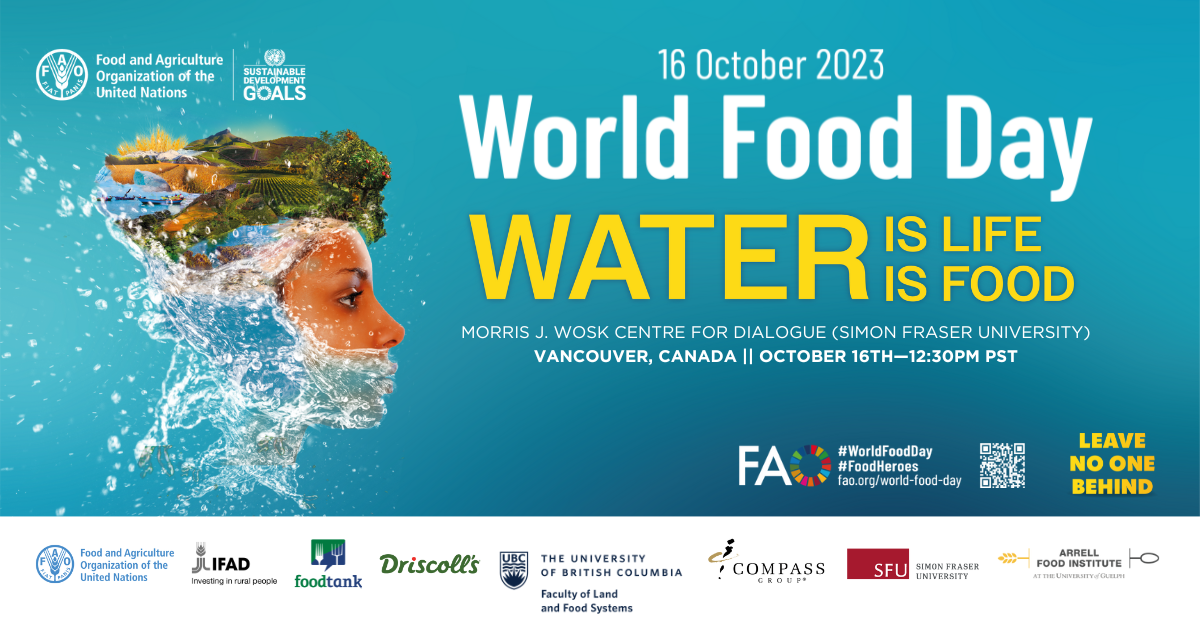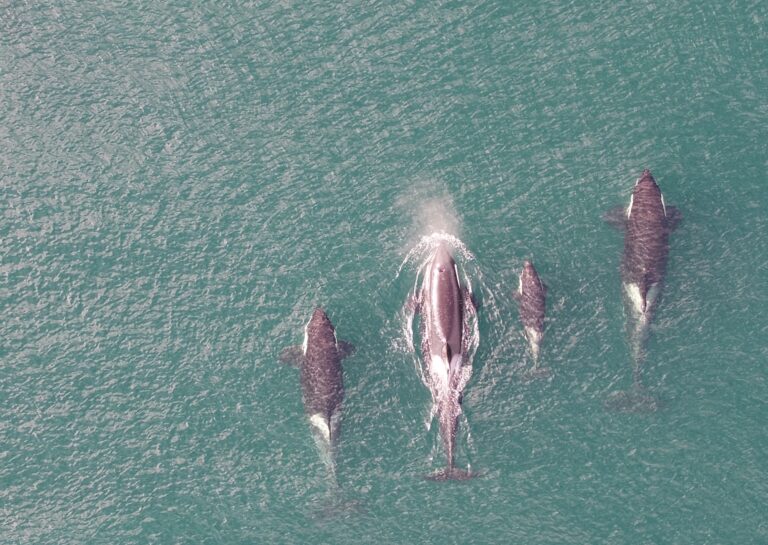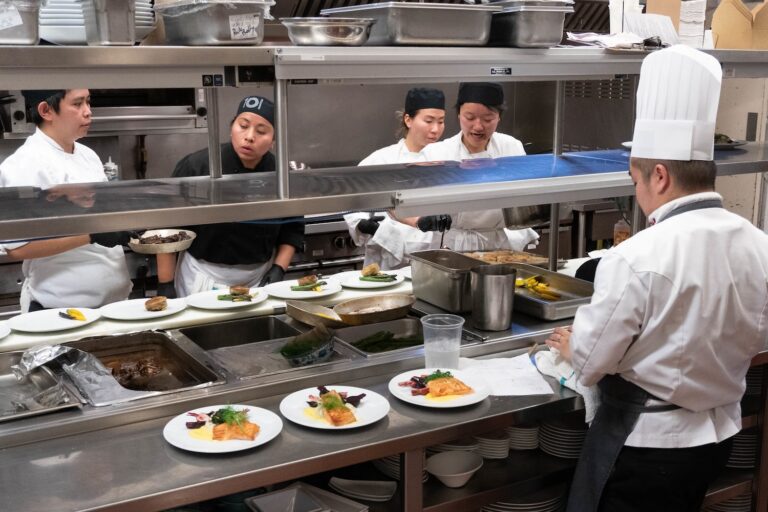Did you know that only 2.5 per cent of the world’s water is fresh and suitable for drinking, agriculture and most industrial uses?
And that every year, agriculture accounts for 72 per cent of global freshwater withdrawals?
Today, 2.4 billion people live in water-stressed countries. And a lack of water is not a faraway problem: In 2023, more than 80 per cent of B.C.’s water basins experienced Level 4 or 5 droughts, the highest on the province’s scale.
How can we take action to protect this precious resource?
Media are invited to join academic, industry, government and United Nations experts at the official North America World Food Day 2023 event today in Vancouver to highlight stories of hope and success on the theme: “Water is life. Water is food. Leave no one behind.”
The event is presented by the Food and Agricultural Organization of the United Nations North America, Food Tank, Driscoll’s, Compass Group, The University of British Columbia and Simon Fraser University in collaboration with the International Fund for Agricultural Development (IFAD), the University of Guelph and the Arrell Food Institute.
The full agenda, including panelists, can be found here.
Date/time: Monday, Oct. 16.,1 p.m. to 4:30 p.m. PDT
Location: SFU Wosk Centre for Dialogue, ICBC Concourse and Salons, Vancouver or via livestream (LINK)
Media are welcome at the lunch (12:30 p.m.) and reception (4:30 p.m.) as well.
In-person media passes available by contacting Bernard Pollack at bernard@foodtank.com.
Select panel topics include:
- Creating a Blue Future for food
This panel will explore the potential of aquatic ecosystems to sustainably support food and nutrition security, the importance of small-scale fisheries for the future of the food system, and what it will take to support an equitable new blue food economy.
- Generating opportunities for better water management for food systems
On land and sea, the management of water has significant implications for our ability to feed ourselves today and generations from now. Speakers will address the state of water management practices and how we can implement solutions that protect ecosystems and conserve water.
- Water works: ways the private sector is transforming water use
The private sector has a critical role to play in ensuring the responsible use of natural resources. On this panel, experts representing four different businesses will discuss the steps that they are taking – from improving sourcing practices to working with producers committed to regenerative food production – to encourage sustainability in the private sector.
- Making youth voices heard on water
Youth are the future of our food systems but too often, their voices are overlooked in decision-making processes. In this session, four young food-systems advocates will discuss their efforts to drive food-systems research forward, demonstrate that food production and conservation are not, in fact, in conflict, and centre the voices of Indigenous communities in this work.
- Leading the way: how policy makers can improve water conservation in food systems
This panel will explore the role of the public sector in the responsible management of waterways. Speakers will discuss the opportunities for public offices to collaborate with food-systems stakeholders to advance shared goals, implement policies that support sustainable food production and equitable food access, and new strategies that are being explored from the local to the national levels to manage water use.




